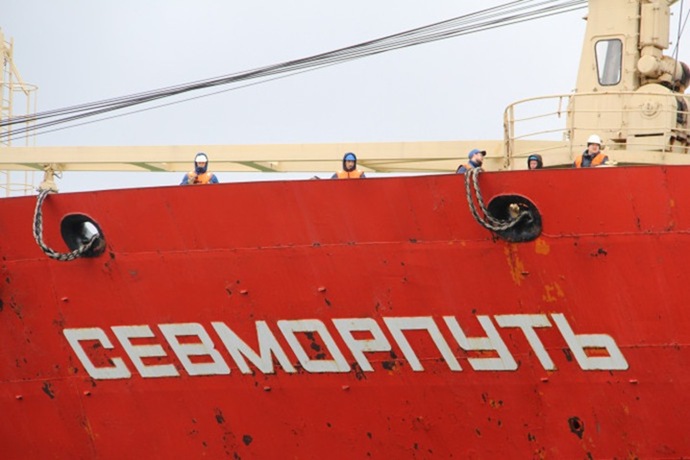The authorities have become skeptical about the transportation of fish products from the Far East along the Northern Sea Route (NSR). This conclusion is evident from an interview with Alexey Chekunkov, Minister for the Development of the Far East and the Arctic, to RBC.

“It seems to me that it is not entirely rational to import fish through the NSR in order for it to have a sticker saying “Transported through the NSR,” the minister said.
He noted that fishermen had previously agreed to carry their catch along this route, subject to subsidizing coastal transportation between the ports of St. Petersburg, Murmansk, Arkhangelsk and the regions of the Far East.
“There is no task specifically to transport fish along the NSR. There was a request from the fishermen: since you subsidize containers, subsidize special vessels and refrigerated trucks for us, and then we will transport the fish through the NSR. But it wasn’t about “we want to follow the NSR,” it was about “we want subsidies.” But we said no. At the peak of the experiment, there were only 6 thousand tons of fish in containers. For comparison, 700 thousand tons of fish are exported by rail from the Far East,” Chekunkov said.
It should be recalled that for the first time the NSR was used to transport fish from Kamchatka in 2011 as an alternative to the railway. At that time, fishing companies independently chartered three reinforced ice-class refrigerated vessels for these purposes.
In 2019, the Seroglazka Terminal LLC, which is part of the Norebo fishing holding, assumed the role of the organizer of such flights. Then the fish products were transported as part of other cargoes from Petropavlovsk by the Sevmorput nuclear lighter carrier, which made several more similar voyages in subsequent years.
On May 20, 2020, the head of the Kamchatka Territory, Vladimir Solodov, raised the topic of using the Northern Sea Route at a meeting on the situation in agriculture, led by President Vladimir Putin.
“Transportation by the Northern Sea Route has a number of advantages, especially during the salmon season. Delivery from Petropavlovsk-Kamchatsky to St. Petersburg is twice as fast as the traditional rail route. And an equally important issue is the preservation of product quality, as we eliminate unnecessary overloads,” said Vladimir Solodov.
“The Fisherman of Kamchatka”